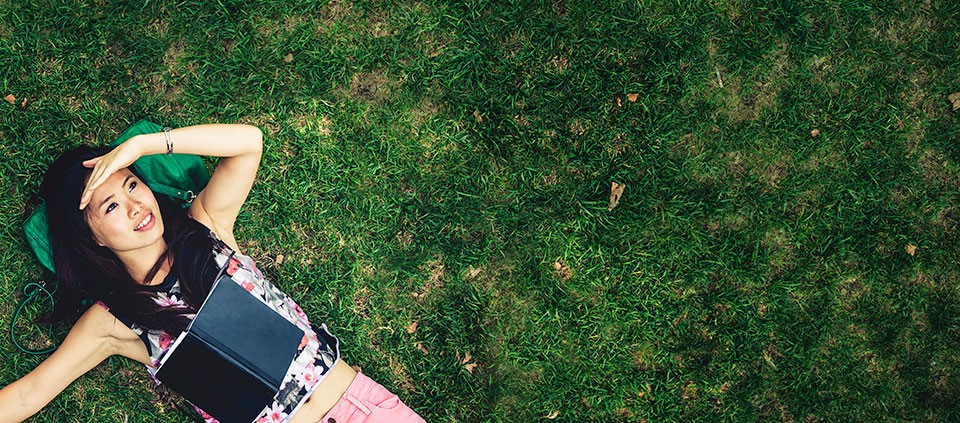Time Affluence: Why Doing Less Makes Us Happier

Recently, I returned early from a weekend trip to Cape Cod because my traveling companion had a Sunday appointment. While I typically stay on the Cape as long as possible and come home to jump right into the work week, this time I had a whole afternoon and evening to use as I pleased.
I took a long, therapeutic bath while listening to Brazilian jazz. I finished a book I’d been reading. Later, I made myself a delicious dinner and watched a movie. When I fell into bed that night, I was practically purring. Those hours of bonus time felt luxurious, and even a little decadent.
I first heard the term “time affluence” from my Positive Psychology teacher, Tal Ben-Shahar, and immediately resonated with it. Having an abundance of time for the things I need and desire to do is one of my favorite ways to feel rich. Tal was citing the research of psychologist Tim Kasser, who calls time affluence “a path toward personal happiness.” The problem is, most of us don’t cultivate it in our overstuffed culture.
“We are a materially affluent society, but we are a time-deprived society in most places around the world,” says Tal. “We need to slow down, because we are constantly doing too much. What we need to actually do is less rather than more if we are concerned about our happiness.”
Research by Kasser and others in the field of Positive Psychology shows that material wealth, beyond meeting basic needs and comforts, does not predict happiness and well-being. Time affluence does, as it allows us to relax, pursue and savor pleasures, and nurture the relationships that matter to us. Having some unstructured time, or “white space,” in our days also supports more creativity.
"We need to be carving out white space in our life, because innovation happens in the white space,” author and creativity consultant Todd Henry says in a recent interview. “When we squeeze all the white space out of our lives, we're not allowing our ideas to marinate. We're not allowing them to breathe. We’re not allowing them to emerge into their full potential.”
That’s the reason that kids need time to simply play, and be. Remember how we used to do that?
Since leaving my radio news career in the late ‘90s, I’ve been deliberately downsizing my schedule and leaving more white space on my calendar. This from someone who was formerly overscheduled to within an inch of her life. These days, I find that I simply need more time between things to feel sane. It also makes me a nicer person.
I’ve shared this prescription with coaching clients and students who’ve told me that it takes some planning and getting used to in this age of distraction and addiction to busyness. It can also be challenging to protect our time from those who want some of it. That’s when “Sorry, I’m not available” becomes a phrase worth repeating, with no need to explain why all the time.
So how else do we grow richer in time? Here are some ideas:
- Get up a bit earlier in the morning to do something that nourishes your spirit, no matter how brief or small, to set the tone for a more intentional and less reactive day.
- Step away from the computer every few hours to do something completely unrelated to work, like petting the cat, visiting a garden, chatting with neighbors or co-workers, or doing a little dance (or walk or stretch).
- Set gentle alarms that remind you to pause and breathe every few hours. Try adding a mantra, such as, “There is enough time.”
- Combine weekly errands in one or two days to leave other days free.
- When staring down a to-do list, ask, “What do I want to do next?” rather than, “What do I have to do next?” One of my clients told me that practicing this expanded her sense of time and increased her energy for what needed doing.
- Remember that Sunday (or whichever day works for you) is supposed to be a day of rest, and treat it that way, with devices turned off.
- Leave time at the end of the day for no electronics, save for a lamp to read, write, or reflect by.
We often say that we don’t have time for the things we truly love and value, when the truth is that we’re likely misspending time on things that we don’t. It helps to start tracking where our time is actually going, and reclaiming chunks for we’d really like to be doing.
“Time is a created thing,” wrote Chinese philosopher Lao Tzu. I invite you to cultivate more time and space in your life, for your greatest happiness and truest wealth.
Kim Childs is a Boston-based life and career coach and writer who specializes in Positive Psychology. She is also a Kripalu Yoga teacher and facilitator of workshops based on The Artist's Way: A Spiritual Path to Higher Creativity, by Julia Cameron.
© Kripalu Center for Yoga & Health. All rights reserved. To request permission to reprint, please e-mail editor@kripalu.org.
Kim Childs is a Boston-area life and career coach specializing in Positive Psychology, creativity, and spiritual living. She writes for Kripalu.
Full Bio and Programs